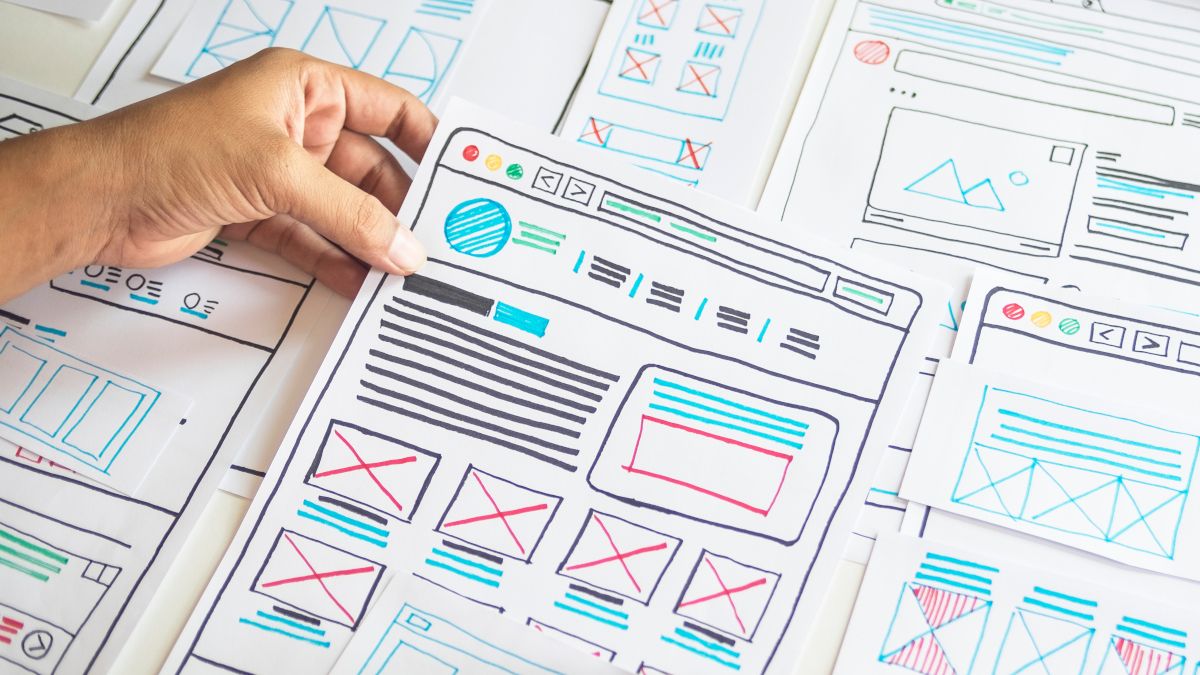Building a website can take time and money, but thanks to AI, both individuals and businesses don’t have to spend nearly as much to get a working site. But is AI comparable to a developer building a website from scratch? Let’s find out what the difference is.
As someone who’s developed an entire game using AI, I know how powerful the tools can be. In recent years, many website builders have integrated AI technology to simplify the design process even further. Platforms like Wix, Jimdo, and Framer now offer AI-driven tools that can create websites in minutes, often with little user input.
- Wix ADI (Artificial Design Intelligence) asks a few simple questions about your needs and generates a complete website tailored to your specifications. It’s designed for people who want a hands-off approach to web design.
- Jimdo Dolphin uses AI to gather information from your existing online presence (like your social media or business listings) and builds a mobile-optimized site in a matter of minutes.
- Framer AI leverages AI in its design capabilities, offering automatic layout suggestions and design tweaks based on best practices.
These tools promise to make website creation even faster and easier, allowing you to access sophisticated design without knowing how to code. They’re one step up from no-code website development, using AI to streamline the process.
AI-powered website builders are incredibly convenient, but how do they compare to bespoke development?
AI tools are an excellent option for small businesses or individuals who need a functional site quickly. They save time, reduce costs, and generate professional-looking websites without hiring a developer or designer. AI’s ability to customize based on user input or existing online data can lead to surprisingly relevant results.
The downside of AI is that it can be challenging to customize the site in a way that you like. Opting for AI also means that you will probably need to redo a site if your business grows, since it’s not designed for scalability.
That said, AI tools are continuously improving, and for many users, they now offer a compelling alternative to full-scale development. AI’s power in speeding up development comes from using a different approach than traditional web developers.
How Does Traditional Web Development Work?
The traditional web design process involves several key stages: discovery, wireframing, design, development, and testing. First, a designer gathers client requirements and creates a wireframe outlining the site’s structure. Once approved, the design phase starts, focusing on esthetics and user experience. The development phase follows, converting designs into code, after which the site undergoes testing for functionality and responsiveness.
Traditional web design relies on a variety of tools and skills. Designers use tools like Adobe XD, Figma, or Sketch to create mockups and wireframes. Using these mockups as a guide, developers code the site using languages like HTML, CSS, JavaScript (frontend development), and often backend technologies like PHP or Python (backend development). Knowledge of databases, hosting, and CMS (content management systems) like WordPress is usually required for more complex sites. There are a lot of websites developers can use as reference points to get their code working as intended.
Compared to AI-powered website builders, traditional web design is far more time-consuming. Depending on the project’s complexity, it can take several weeks or even months to complete. This approach offers more customization and control but demands significant time for revisions, testing, and ongoing maintenance. For a simple website, a professional designer and developer might still need several weeks to ensure it’s polished and fully functional.
How Does AI Compare to Traditional Web Development?
While AI appears on these web development sites, it’s still optional. You could theoretically design a portfolio site from scratch on Wix without using AI at all. However, this design process will still be more time-consuming than the AI builder and still won’t allow as much creative freedom as a bespoke site, since Wix still operates on the template system. Looking at both of the approaches, it’s easy to spot where AI development is more compelling than hiring a trained professional:
Speed and Efficiency
AI-powered website builders are incredibly fast, often generating a complete site in minutes, whereas traditional web design can take weeks or months. AI tools are much more efficient for users needing a quick online presence.
Design Quality and Uniqueness
Traditional web design offers more remarkable uniqueness and a tailored user experience, since every element can be customized to the client’s vision. AI builders use templates and automation, which may result in more generic designs, though still professional-looking.
Customization Options
Customization is where traditional design shines. Developers can create any feature or function needed, while AI platforms are limited to pre-built templates and features that may not meet your particular needs.
Learning Curve
AI tools are designed for ease of use, often requiring no coding knowledge, which makes them accessible to beginners. Traditional design, however, requires expertise in coding, design software, and sometimes server management, making the learning curve steeper.
Cost Considerations
AI-powered builders are generally more affordable, with fixed monthly plans and no need to hire developers. While offering greater flexibility, traditional design comes with higher costs, including designer and developer fees, making it a more considerable investment in time and money.
Traditional web design is better suited to certain situations. A bespoke website is a better choice if you’re building a business site that you intend to scale as your business grows. AI web development might be the better option for freelancers or small businesses, as it’s less time-consuming and more cost-effective. Even without AI helping, there are quick and easy ways to set up a website yourself.
Future of AI in Web Development
While AI website builders are fast and accessible, they lack the deep customization, unique design options, and complex functionality that traditional development offers. Ai will continue to evolve, allowing for more sophisticated web development tools in the future. But how much would it impact the web development industry?
Developers are already embracing AI in some circles and using it to help prototype and develop mockups faster than ever before. These developers have realized that competing with AI may not be the best way forward, but using it as a tool will help them stand out. In the future, we may see web development move from being a code-heavy industry to being more design-centric, focusing on aesthetics. AI will do the heavy lifting in the background to ensure the code works.






